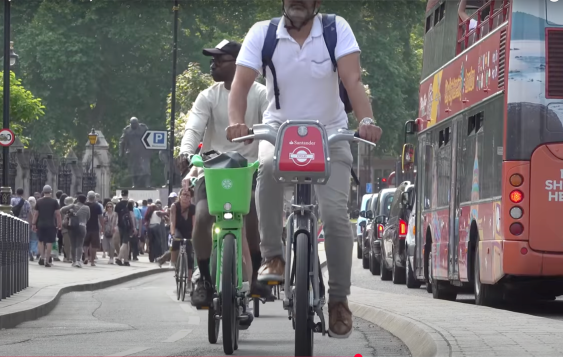One of the most unusual members of the Streetsblog Network is the Santa Rosa CityBus blog, written by staffers from the municipal bus system in that Northern California city and "intended
to highlight for the public some of the activities, efforts and
challenges of operating a bus system in a mid-size California city."
It's a laudable -- and rare -- effort by a transit agency to create
some accountability and transparency for riders.
 Usually, the tone of the blog is pretty positive. But yesterday,
Usually, the tone of the blog is pretty positive. But yesterday,
transit planner Joanne Parker was feeling burned by an experience she
had with a reporter from a Bay Area television station, KTVU, who had
called her about some of Santa Rosa's requests for federal stimulus
money:
Because of KTVU'sdecision to portray the City of Santa Rosa and Santa Rosa CityBus asirrational money-grabbers, with "questionable judgment", we here atCityBus have spent part of today fielding angry phone calls from ourconcerned citizens. So far, none of our citizens have ended ourconversations angry and all have had a greater understanding of ourpriorities and the process that is underway. For the record, a fulllist of City of Santa Rosa project requests that are pending at thispoint in the federal stimulus process will be presented to the Santa Rosa City Council on March 10th.
The
KTVU report seems determined to present a select few items from
stimulus wish lists in the most negative light possible. The CityBus
proposal for modernizing fareboxes, which Parker writes would "provide
service more efficiently (thus lowering operating costs) and would
enable us to provide customers with better service on the street
(better route planning and more fare options, such as day passes)," is
mentioned only quickly, and without any of the explanation that Parker
says she provided.
The
post demonstrates the kind of battle that transit systems face when
explaining the importance of the services they provide to the public
and the media. And in California, as network member Transbay Blog
reports, these systems are already under terrific financial pressure,
with the state on the verge of eliminating State Transit Assistance
funds.
Around the country, transit ridership is up and service is being cut. Hopes that the stimulus package would provide meaningful relief for these vital systems have been dashed. Today, David Leonhardt of the New York Times continues to press for answers to the reasoning behind the reluctance to fund transit:
[T]hestimulus bill does not include operating funds for masstransit. Instead, the bills would pay for new construction, of both newtransit projects and highways. Why?...The main reason seems to be afear that giving federal funds to transit agencies will make them fat,happy and inefficient.
That answer isn't good enough, and organizations like Transportation for America -- as well as the bloggers of the Streetsblog Network -- are going to continue to expose the faulty thinking it represents.




